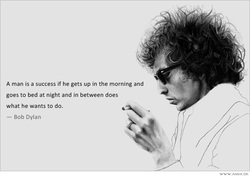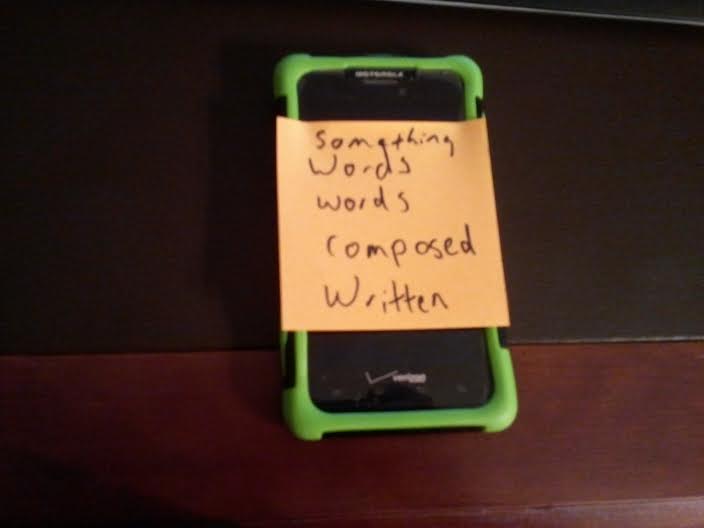|
Unlike last time, I wasn't lurking around the Litserv for too long before I found a post that really screamed at me. The title of the post was "debate on writing assessment", and it kind of reminded me about a conversation we had as a class a day or two ago. Can we really "grade" written assignments? And with the recent change in the SATs by getting rid of the written part of the test, it kind of made sense to me that teachers and students would both begin to question whether or not we can really grade written assignments like we currently do.
Is it possible for we, as readers, to be "too subjective"? My opinion on one subject could be VERY different from yours. For example, I really couldn't give a toss about whatever happened on last week's Walking Dead. On the other hand, you could respectfully tell me to screw off because of my excitement for Game of Thrones coming back in less than a month. (I really am excited, but please don't hurt my feelings). The same can be said about writing assignments. I used to hate writing argumentative essays back in high school, because I would always think of how the teacher would grade me, based on whether or not I agreed or disagreed with his or her opinion on a subject. See how this is kind of getting into dicey territory? More than not, posters in the thread shared the same fear, just because writing assessments have become a little bit of a beast with many heads. As an aspiring writer myself, I know just how subjective folks can be when it comes to reading. I just can't wrap my head around the idea of grading someone on a standardized test like the SATs or GREs (which I experienced a month or two ago) and didn't really appreciate being put on the spot for an hour, looking at a prompt for the first time and being expected to write about the topic right out of the gates. I know for a fact that I didn't produce the best writing I could've done, if I was given a heads up on what I would be writing about.
0 Comments
Posted on March 9, 2014 was a post on the listserv called "Composing on a Cell Phone," which opened the doors for many to discuss what this means for their students' compositions, and a potential new medium of writing--or not.
This also opens a door about technology in the classroom. One person wrote: "So often, technology is touted as the promise and answer to everything.We are told that technology makes everything easier, simpler, and more accessible. But when we consider technology and Basic Writing, is that true? Does technology provide open access for our students to achieve their educational goals, moving from developmental writing courses through graduation? What is the impact of technology on basic writing classrooms today? What are the political consequences of eschewing digital pedagogies? Of adopting them? Who controls these technologies? What are the implications of who creates and controls them? What does responsible basic writing pedagogy look like in a digital age? This pre-conference workshop will work to explore the possibilities, realities, and restrictions of technology and basic writing pedagogies." Which brings me back to Denis' and my presentation on basic writing. Not everyone has access to the same technology. While we may carry around laptops, that doesn't mean they all function the same. Also some students still use "dumb phones," and cannot access the internet or documents in the same way others do. There is also a question for me about technology literacy. What about students who don't know about some good apps to keep documents on like Evernote? What about those who are not as advanced online as others, or those who don't utilize sites as much as others. An example would be this blog: The people in this class with experience on Weebly already knew how to do everything, drag and drop 'elements' etc. But most had to learn, and that could have been potential struggle for some. Back to cell phones, how well can some people really compose on there? And at what medium? Do they have an office app? Are they emailing something to themselves? Or are they using basic notepad? And in what way do professors get to see it? To me, it seems like professors and educators do not like cell phone written pieces. Mostly because its hard to use Spell Check and actually type more than 3 words on the screen. But outside of the education world, we see so many people using phones. An example would be Program Committee's Open Mic nights. Poets keep their poetry in different formats so they can access them on any device. Even my phone. They recite from a phone or tablet in front of them. Sometimes a laptop if they can juggle that with the mic. But you see them scroll, and eventually they look up and finish without needing their device. I suppose it depends on the medium and the writer's favored way of writing. You couldn't suppress a poet sitting on a subway with the only thing to write on is a phone. Or someone who stores their pieces everywhere for optimal pick up. Its an art. While basic writing, essay writing, and classroom writing may not be optimal on a cell phone, it may be something people like to do because its all they have on them constantly. Very rarely do you see someone with notepads now. Its one of those things that have a time and a place. As I looked through the posts on listserv this week, there wasn’t much that interested me until a post about the amount of time teachers should spend commenting on their students papers. The woman who posted felt that throughout her teaching career, she has been taking too much time commenting on her student’s papers. Her post triggered a significant amount of replies as it is definitely a hot topic for all teachers dealing with grading papers. I enjoyed the posts suggesting that she should start doing audio comments and give those to her teachers. I couldn’t help but laugh at this suggestion as I couldn’t really picture myself listening to my teacher’s audio recordings every time I got a paper back. I also really couldn’t see the majority of my teacher’s setting up an audio system that would record them talking about their students papers. Some of my professors can hardly figure out how to work their cellphone, I couldn’t imagine seeing them try to figure this out. I do think that eventually technology will start to play a major role in teachers commenting on teachers, but at this present moment I just can’t see it happening. It is definitely something that I look forward to seeing in the future though. Let me get back to the main point of why I chose this article. Throughout my academic career I have had the opportunity to experience both the good and the bad when it comes to teachers commenting on my academic papers. I have had teachers who just simply gave me a letter grade after I had poured my blood, sweat, and tears into a ten page research paper for a week that consisted of very little sleep. Teachers like that were the ones who I questioned whether they had even read the paper and if they were just waiting for their paycheck at the end of the week. I have also received papers back where teachers absolutely destroyed my writing in their comments. Comments like these made me question whether I even really belonged in school or not. The teachers’ comments that taught me the most about writing were the ones that showed they truly cared about helping me become a better overall writer. Their comments were for the most part positive, instructive and extremely clear. They illustrated what I had done right, what I had done wrong, and how I could improve on my next paper. I’m sure other students have very similar experiences to mine. I think teachers need to find a happy medium where they aren’t writing too much on a student’s papers, that the student won’t read the comments because they are overwhemled, but that they also aren’t just simply giving the student a letter grade with no explanation for it. The best way for a student to learn how to become a better writer is by understanding his strengths and weaknesses in their writing and how to improve. Effective comments go a long way in helping a student significantly grow as a writer. This topic immediately made me think of the scene in “A Christmas Story” where the teacher is grading her student’s papers right before Christmas vacation. -Brian Grossman A recent post on the WPA Listserv (from yesterday 3/2/14) inquires about suggestions for a student run literary magazine to be published on wordpress. The post explains the difficulty of interacting with students from other writing progams who retain significant amounts of funding. And here we have the classism that prevents so many from seeking further education. Ideas are there own currency. Zero funding should be required to present ideas to a wider audience. The professor writing the post explains that her students have brilliant promotional ideas. I say, "So what?" Promotional ideas have incredibly limited value. They may raise the public consciousness of a magazine or blog, but such success is short-lived. If a blog or magazine publishes content that is innovative, revolutionary, worthwhile, they do not need to promote. Ideas will prevail. They will impact a scarily small portion of society, but they will impact that portion of society that gives a fuck (excuse my language). I say, why in the hell are you worried about promotional ideas? Why not worry about the quality, the significance of a blog? This focus on "promotional ideas" destroys students. It doesn't matter if your blog doesn't "attract" a goddamn reader. You are not writing to attract, you are writing to explain something that to you is a truth. If you think I'm putting words in your mouth, do us all a favor and stop writing. Now. I think we can all agree that we should listen to Bob Dylan; if he can be bothered to talk he probably has something important to say. And Bob Dylan has told us, "A man is a success if he goes to bed at night and wakes up in the morning, and in between he does what he wants to do." "Promotional ideas" are a waste of time. Don't appeal to the lowest common denominator. If you have something to say, say it. If people don't see its value, they can go do unpublishable things to themselves. Stop comprosing, and start L-I-V-I-N like everybody's favorite burnout Wooderson.  |

Blog493This blog is a reactionary overview of the daily posts to the Writing Program Administrator's listserv. One day; one blogger; lots of reactions. Archives
May 2014
Categories |

 RSS Feed
RSS Feed